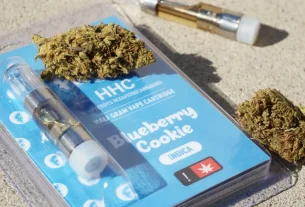Estimated Reading Time: 6 minutes
LLt’s be honest, most of us have a sweet tooth. That little craving for something sugary can be incredibly persistent.
But the truth is, excess sugar is a sneaky saboteur, quietly undermining our health.
From energy crashes to long-term health problems, the effects of too much sugar are well-documented.
This is where learning how to reduce sugar naturally becomes crucial. It’s not about deprivation; it’s about empowerment.
It’s about taking control of your well-being and making informed choices that support a healthier, happier you.
This journey is about ditching the processed stuff and rediscovering the joy of naturally sweet flavors and a balanced lifestyle.
I remember when I first realized the impact of my sugar intake.
A constant feeling of fatigue, coupled with those mid-afternoon slumps, had become the norm.
A quick check of my diet revealed the culprit: hidden sugars lurking in seemingly healthy snacks and drinks.
It was a wake-up call, and I was determined to find natural ways to reduce sugar.
Before you start your sugar-reduction journey, it’s essential to become a sugar detective. Sugar isn’t always obvious.
It hides in plain sight, disguised under various names.
Knowing where to look is the first step in figuring out how to reduce your sugar intake naturally.
This includes not just the obvious culprits like sodas and candy, but also seemingly healthy options.

Consider this: A single serving of flavored yogurt can contain as much sugar as a candy bar!
Granola bars, breakfast cereals, and even seemingly innocuous items like salad dressings and sauces can be loaded with added sugars.
Learning to read food labels meticulously is your secret weapon. Pay close attention to the’added sugars’section, not just the total sugar content.
Ingredients like high-fructose corn syrup, dextrose, sucrose, maltose, and syrups of all kinds are red flags.
Remember, the goal is to identify and eliminate these sneaky sources.
Now that you’re armed with awareness, let’s explore how to reduce sugar naturally with practical strategies.
It’s all about shifting your perspective and making sustainable changes. These aren’t about quick fixes; they’re about building lasting habits.
One of the most impactful changes I made was swapping sugary drinks for alternatives.
I started drinking sparkling water with a squeeze of fresh lemon or lime.
This satisfying, refreshing experience helped me gradually reduce my sugar cravings.
I also started experimenting with herbal teas, enjoying the complex flavors without added sugar.
The transition to a sugar-free lifestyle doesn’t mean forgoing sweetness altogether.
Several natural sweeteners offer a delicious alternative without the negative health impacts of refined sugar.
However, it’s important to remember that even natural sweeteners should be used in moderation.
Some natural options are: Stevia, Monk fruit, Erythritol, Xylitol. Start by experimenting with small amounts and gradually adjust to your taste.

Sugar cravings can sometimes stem from emotional factors. Stress, boredom, or sadness can trigger the desire for something sweet.
To successfully navigate the path of reducing sugar naturally, understanding the mind-body connection is crucial.
Developing healthy coping mechanisms is as important as the food choices you make.
For me, exercise has been a game-changer. When I feel a craving coming on, a brisk walk or a quick workout often does the trick.
Meditating and practicing deep breathing techniques are also effective for managing stress and emotional eating.
Sometimes, simply acknowledging the craving without acting on it can be enough.
Remember, it’s okay to have cravings, but it’s even better to have strategies to handle them healthily.
I’ve seen firsthand the positive impact of these strategies, but here’s a glimpse into some other examples that you may find helpful.
Case Study 1: Sarah, a 35-year-old marketing executive, struggled with constant fatigue.
She swapped her daily sugary latte for unsweetened green tea and started carrying a bag of almonds with her.
Within a few weeks, her energy levels soared, and she lost a few extra pounds. Sarah says that she feels better than ever.
Case Study 2: John, a 48-year-old teacher, significantly reduced his sugar intake.
He swapped sugary snacks for fruits and vegetables and started preparing home-cooked meals.
He was astonished to find he had more energy, and his moods leveled out.
John now uses a meal-prepping system every Sunday to guarantee a healthy, sugar-free diet.

There are many myths floating around regarding sugar and sugar reduction. Let’s clear up a few common misunderstandings.
The journey of how to reduce sugar naturally is an investment in your long-term health.
By making conscious choices, you are laying the foundation for a more vibrant, energetic, and resilient you.
This is not a temporary diet; it’s a lifestyle adjustment.
By sticking to these strategies, you’ll not only experience increased energy levels, but improved mood, and a lower risk of chronic diseases.
Embarking on the path of learning how to reduce sugar naturally is one of the best choices you can make for your health.
Remember, it’s a journey, not a destination. Be patient with yourself, celebrate small victories, and don’t be afraid to experiment.
With the right knowledge, planning, and commitment, you can successfully reduce your sugar intake and experience a profound improvement in your well-being.
Embrace the process, and enjoy the sweetness of a life lived with vibrant health. You deserve it!
Ready to take the next step? Join our newsletter for weekly health tips!
Frequently Asked Questions
What are the most effective strategies for reducing sugar in my diet?
Effective strategies include swapping sugary drinks for water or herbal teas, cooking meals at home to control ingredients, replacing processed snacks with fruits and nuts, using spices to enhance flavor without sugar, gradually reducing sugar in recipes, meticulously reading food labels, and prioritizing protein and fiber-rich foods.
What are some healthy natural sweeteners I can use?
You can explore natural sweeteners such as Stevia, Monk fruit, Erythritol, and Xylitol. However, it is crucial to use all sweeteners in moderation, as their overall impact on your health can vary, and these should not replace a healthy diet.
How can I manage sugar cravings naturally?
Managing sugar cravings naturally involves addressing the root causes, such as emotional eating. Practice stress-reducing techniques like meditation or deep breathing, get regular exercise, and have healthy snacks readily available. Recognize and acknowledge cravings without immediately giving in, and remember that cravings usually pass.
Are fruits with high sugar content bad for me?
No, fruits contain natural sugars but also vital fiber, vitamins, and minerals. The fiber helps slow down the absorption of the sugar, lessening the negative effects. While fruits should be part of a balanced diet, it’s best to eat a variety of fruits to maintain the best health possible.
How do I know if I’m eating too much sugar?
Warning signs of excess sugar intake include frequent energy crashes, sugar cravings, weight gain, skin problems, and an increased risk of chronic diseases. Pay attention to your energy levels, eating habits, and any physical changes. If you experience any of these, then it’s best to begin reducing your sugar intake.



